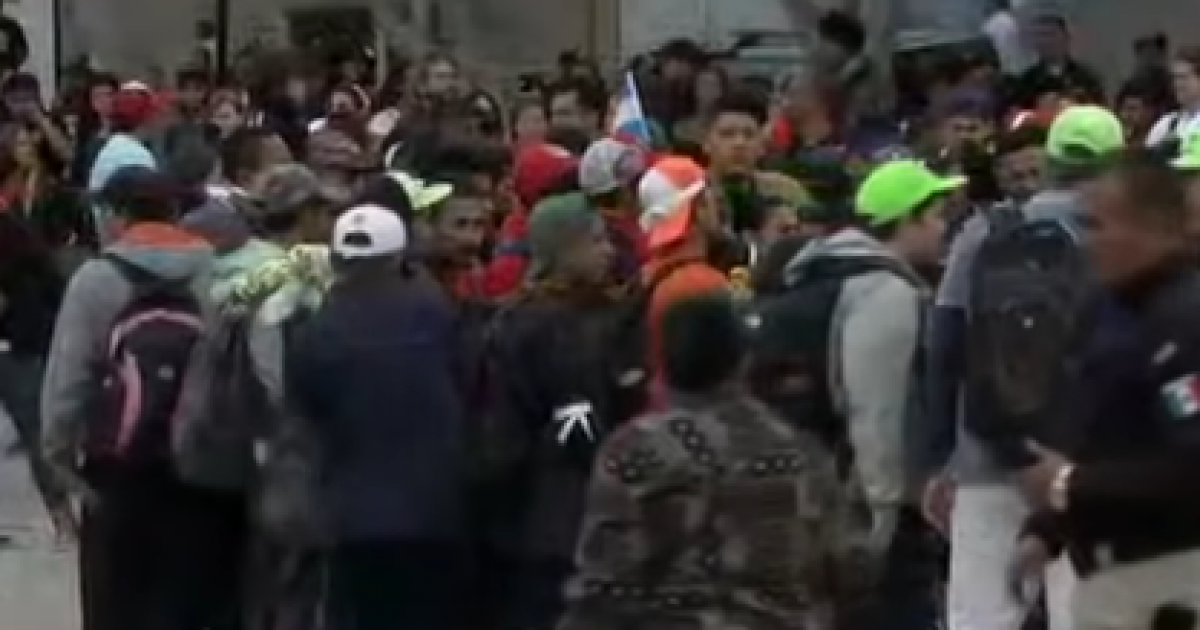
Ever since the 2020 Election concluded, the Department of Homeland Security has made preparations for a potential wave of Central American migrants.
Drug cartels are allegedly driving these migrants northward, says South Texas congressman Henry Cuellar.
On December 11, 2020, Henry Cuellar told Border Report that he was informed by DHS a few weeks ago “that the bad guys are starting to promote to people of Central America and Mexico that ‘the border will be open; it will be different so start getting ready to come.”
Cuellar currently serves as the vice chairman of the House Appropriations Homeland Security Subcommittee and is generally in the know about the agency’s moves and preparations with respect to expenditures and federal costs.
Cuellar asserted that drug cartels are “promoting and staging” migrants in large numbers to begin making their way to the American Southwest. These cartels are doing so under the assumption that a Biden administration will be laxer than the Trump administration on the issue of asylum claims.
Although the projected numbers are unclear, Cuellar doubts that a potential Central American caravan will grow as large as the one from the fall of 2018.
Thanks to the Trump administration’s tough diplomacy, Central American security forces have stepped up their border security measures. They requested migrants to provide passports or identity cards and proof of a Wuhan virus test. If they could not present those documents, Honduran migrants would not be allowed to cross into Guatemala.
On December 9, a caravan of migrants coalesced in the Honduran city of San Pedro Sula and began walking to the border with Guatemala. The group was made up of 600 people before they were not allowed to cross into Guatemala’s southern border due to them not having travel documents or proof of Wuhan virus tests.
Cuellar recently met with Mexican foreign affairs officials who vowed to continue tightening up security at Mexico’s southern border with Guatemala to prevent illegal aliens from entering Mexico.
“They still want to continue securing their southern border, which I think is good for us,” Cuellar commented.
Homeland Security officials emphasized during their briefing with Cuellar that the border wall is crucial to preventing caravans and other masses of migrants from entering the U.S. at will. “We got personnel, we got equipment, we’re working with Mexico,” DHS said to Cuellar, the congressman recounted.
“We are monitoring potential migratory trends and continuously evaluating resources,” CBP Public Affairs Specialist Matthew Dyman said to Border Report.
DHS Acting Secretary Chad Wolf traveled to Central America this week to “discuss broader security issues impacting the region.” Wolf visited Panama City, Panama, and San Salvador, El Salvador from December 13 to December 16.
Central America is a key region with regards to mass migration. El Salvador, Guatemala and Honduras make up the so-called Northern Triangle, where hundreds of thousands of migrants heading to the U.S. originate from.
Wolf met with El Salvador’s President Nayib Bukele to discuss El Salvador’s implementation of the Asylum Cooperative Agreement (ACA). The ACA was signed in September 2019, according to a DHS statement.
The Trump administration was able to craft similar agreements with the three Northern Triangle countries to stem the flow of migrants moving northward. These agreements encouraged migrants to stay put in their countries of origin and incentivized Northern Triangle countries to share data on migration with the U.S
According to DHS reports, 72 percent of all migrants captured at the Southwest border up until August of the fiscal year of 2019 came from El Salvador, Honduras, and Guatemala before these agreements were ratified.
Although Mexico has the trappings of a failed state, it has done a good job in playing ball with its southern neighbors to contain mass migration. Nonetheless, immigration is a multi-pronged issue and cooperation with Mexico and Central American countries is one piece of the puzzle.
The U.S. still needs a solid barrier on its southern border, which will likely be scrapped now that Joe Biden is being installed as president.



